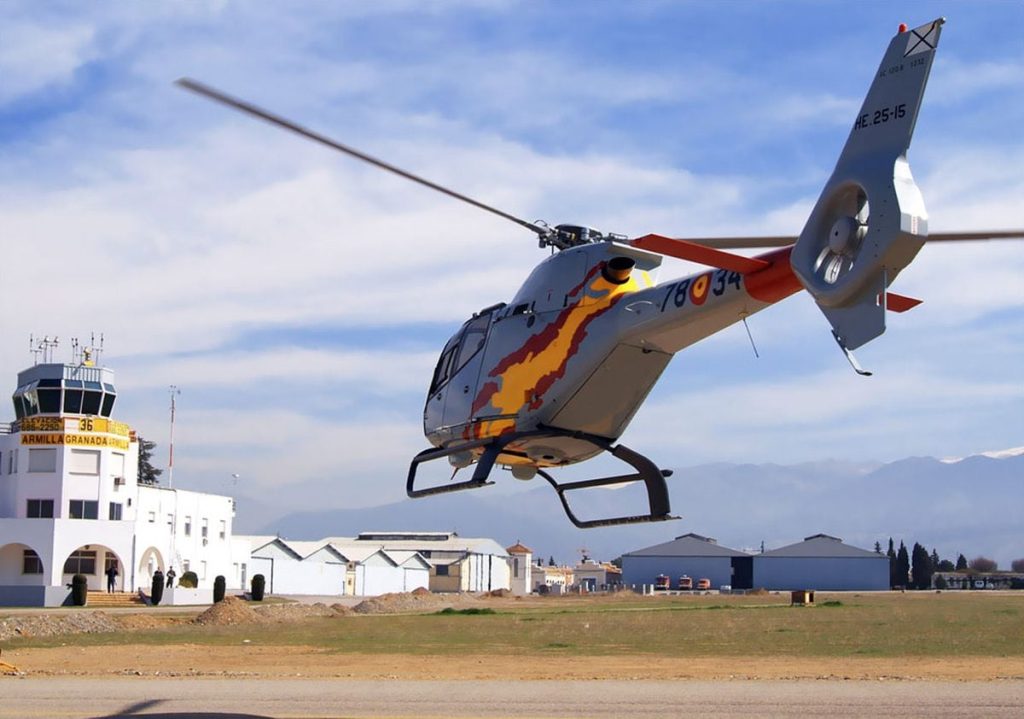The possible construction of a new immigrant center for about 1,200 people on land belonging to the Ministry of Defense annexed to the Armilla air base, which covers several municipalities near the city of Granada, has sparked criticism of the government by the mayors of two of these municipalities. The mayor of Alhendín has criticized the start of emergency construction work on the land, which the public company Tragsa notified the City Council about on Tuesday, to prepare the grounds in a first phase, and in a second phase, to build reception facilities. Sources from the Ministry of Immigration indicate that the decision to open the new center has not been finalized, and it would be intended for migrants who have arrived irregularly by sea to Spain. Alhendín, where the new center would be located, is opposed to the construction because, as explained by the mayor Francisco Rodríguez, the land is classified as rustic, which would prevent the construction. The mayor of Armilla, Loli Cañavate, has also expressed concerns about the proximity of the possible center to the urban area.
The subdelegate of the Government in Granada, José Antonio Montilla, stated on Wednesday morning that the transfer of the land was not yet effective and was still under evaluation, and that the facilities would be used for humanitarian purposes, especially for asylum seekers and international protection applicants. Sources from the Ministry of Immigration emphasize that the project is still being considered and would be for irregular migrants arriving by sea to Spain, many of whom seek asylum and need accommodation and sustenance. The plot of land where this new immigrant center is planned is extensive, covering 10 hectares (100,000 square meters), and although it belongs to the Armilla air base – mainly used as a training center for military helicopter pilots – it is not within the military compound, but rather in a large triangular area known as Colonia Dávila, which is currently vacant, facing the military facilities and separated from them by a road.
The mayor of Alhendín has criticized the government for acting unfairly, as they had not received any information from the Ministry of Inclusion, Social Security, and Immigration about the project, nor had they been asked for the necessary municipal permits. The City Council asserts that they have not been asked for a construction license but have been informed about the “start of emergency construction work.” Mayor Rodríguez called for an extraordinary monographic session on Thursday and stated firmly that they will not allow the alteration of the urban situation. The concern is mainly about what affects the local area the most, and the mayor is determined to protect the urban landscape from any changes.
The possibility of constructing a new immigrant center has raised concerns among local authorities and residents, particularly in Alhendín and Armilla, due to the potential impact on their communities and the urban landscape. While the Ministry of Immigration has not finalized the decision to open the center, the idea is to provide accommodation and support to migrants who arrive irregularly by sea to Spain and are mainly seeking asylum. The location of the proposed center, on land near the Armilla air base, has been met with opposition from local officials who believe it contradicts urban planning regulations or is too close to residential areas. The lack of communication and consultation with municipal authorities has further fueled the controversy surrounding the project and led to calls for transparency and respect for local regulations.
The dispute over the construction of the immigrant center highlights the complex challenges and tensions surrounding migration policy, local governance, and urban development. The conflicting interests and perspectives of different stakeholders, including government agencies, local authorities, and residents, underscore the need for a comprehensive and inclusive decision-making process that takes into account the concerns and priorities of all involved parties. The debate over the potential center in Alhendín and Armilla reflects broader issues related to immigration, land use, and community development, highlighting the importance of balancing the needs of migrants with those of local populations and ensuring that any new facilities or programs are implemented in a way that respects legal and regulatory frameworks. As the situation continues to unfold, it is essential for all stakeholders to engage in constructive dialogue and collaboration to address the challenges and opportunities presented by immigration and urban planning in a manner that promotes social cohesion, respect for the rule of law, and sustainable development.


